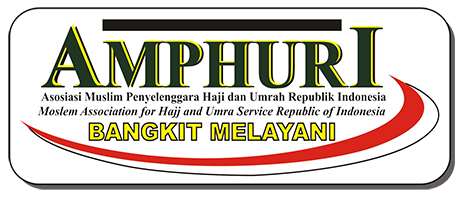THE SOCIAL STATUS OF HAJJ IN RURAL LAMPUNG
DOI:
https://doi.org/10.32332/multazam.v4i2.9436Keywords:
Social Status, Hajj, Rural Lampung CommunitiesAbstract
This study examines the impact of performing the Hajj pilgrimage on an individual's social status in rural Lampung communities. The aim of this research is to analyze how the titles 'Haji' or 'Hajjah' influence social standing, religious leadership roles, and their relation to economic capacity. The research methods used are observation and interviews. The findings show that individuals who have completed the Hajj experience a significant rise in social status. The title "Haji" or "Hajjah" attached to their names adds prestige and respect within the community. Moreover, they are often entrusted with leading religious and social events and assume important roles in local religious leadership. The social status of Hajj is also reflected in changes in clothing style and other physical symbols, indicating a stronger religious commitment. The ability to perform Hajj is often associated with good economic standing, further reinforcing the positive perception of their financial status. Overall, the Hajj not only elevates social status but also fosters an increase in religious education within rural Lampung communities.
References
Agus Syafei and Anton Bawono. 2023. "The Benefits of Hajj from Micro and Macro Economic Perspectives." Msharif al-Syariah: Journal of Islamic Economics and Banking. Vol. 8, No. 1. DOI: http://dx.doi.org/10.30651/jms.v8i1.18390.
Bahri, Samsul. “The Meaning of Hajj and Social Status from the Community Perspective (A Case Study in Jonggat Sub-District, Central Lombok Regency).” Journal of Communication and Islamic Broadcasting 1, no. 1 (2024).
Cahyana, Dian, Rizky Maulana, and Lilis Renfiana. 2023. “Analysis of Human Resource Management in the Hajj and Umrah Guidance Group (KBIH) Cahaya Multazam.” Multazam: Journal of Hajj and Umrah Management, Vol. 3, no. 1. https://doi.org/10.32332/multazam.v3i1.5961.
Denzin, Norman K., and Lincoln, Yvonna S. Handbook of Qualitative Research. California: Sage Publications, 1994.
Durkheim, Émile. 1995. “The Elementary Forms of Religious Life”. Translated by Karen E. Fields. New York: The Free Press.
Fauzan, Ahmad. “The Symbolic Meaning of Hajj Worship: An Ali Shariati Perspective,” Islamic Review: Journal of Islamic Research and Studies, Vol. 11, no. 1 (2022): 35–58. https://doi.org/10.35878/islamicreview.v11i1.356.
Fauzi, M., & Arifin, Z. 2016. "Symbolic Capital and Social Stratification in Rural Indonesian Communities: The Case of Hajj." Journal of Rural Sociology, 3(2), 45-61.
Fitri, Bela. “The Title of Hajj as Social Stratification in Society,” Journal of Religious Sociology (JISA), Vol. 6, no. 1 (2023): 1. https://doi.org/10.30829/jisa.v6i1.12962.
Geertz, Clifford. “Peddler and Princes: Social Development and Economic Change in Two Indonesian Towns”. Chicago: University of Chicago Press, 1963.
Hasdiana, Ulva. “Hajj in Various Perspectives (Fiqh, Normative-Philosophical, and Social),” Analytical Biochemistry, Vol. 11, no. 1 (2018): 1–5.
Hesti Nuryani. 2023. "Hajj and Social Status in the Village of Bumiharjo, Batanghari District, East Lampung Regency: A Perspective from Islamic Economics." IAIN Metro: Department of Hajj and Umrah Management, Faculty of Islamic Economics and Business.
IPHI (Ikatan Persaudaraan Haji Indonesia). Annual Report of IPHI: The Social and Religious Role of IPHI Members in the Community. Lampung: IPHI, 2023.
Jafar, Iftitah. “Concepts and Practices of Hajj Worship in Islam.” Islamic Studies Journal, Vol. 15, no. 2 (2020): 102-115.
Miles, Matthew B., and Huberman, A. Michael. Qualitative Data Analysis: A Sourcebook of New Methods. Beverly Hills, CA: Sage Publications, 1994.
Moleong, Lexy J. Qualitative Research Methods. Bandung: PT Remaja Rosdakarya, 2017.
Nasruddin. “Interpretation of the Meaning of Hajj Embedded in Bugis Society.” Journal of Social Sciences and Education, Vol. 4, no. 3 (2020). http://dx.doi.org/10.58258/jisip.v4i3.1159.
Nasrullah, N., & Triyono, T. 2019. ‘Perceptions of Rural Communities towards Hajj’. Journal of Social and Cultural Studies, 5(2), 78-92. DOI: 10.2345/jsb.v5i2.1234.
Putra, M. H. 2021. ‘Social Mobility and the Role of Hajj in Rural Indonesia’. International Journal of Islamic Studies, 13(1), 67-80.
Putri, Endrika Widdia. “Protestant Ethics and Asceticism in Max Weber’s Thought,” Al-Adyan: Journal of Religious Studies, Vol. 3, no. 1 (2022): 19–26. https://doi.org/10.15548/al-adyan.v3i1.4094.
Rissing, Ilham, Muh Saleh Ridwan, and Zulfahmi Alwi. “The Concept of Hajj in Islamic Law: A Study of Ali Shariati’s Thought,” Qadauna, Vol. 3 (2022): 247–64. https://doi.org/10.24252/qadauna.v3i2.23542.
Sugiyono. Quantitative, Qualitative, and R&D Research Methods. Bandung: Alfabeta, 2018.
Supriyanto, John. “History and Management of Hajj Worship from an Islamic Perspective”. Jakarta: Pustaka Al-Qur'an, 2016.
Weber, Max. 1958. “The Protestant Ethic and the Spirit of Capitalism”. Translated by Talcott Parsons. New York: Charles Scribner's Sons.
Wibowo, A., & Kurniawan, R. 2020. "Hajj and Its Role in Social Mobility in Rural Lampung." Journal of Social Hierarchies and Mobility, 6(3), 34-51.
Yusri, I. 2020. "The Role of Hajj in Strengthening Social Cohesion in Rural Lampung Communities." Journal of Anthropology and Sociology, 8(2), 112-128.
Zainuddin, M. “Hajj and Social Status: A Study on Religious Symbols Among Muslim Communities,” El-Harakah (Accredited), Vol. 15, no. 2 (2013): 169. https://doi.org/10.18860/el.v15i2.2764.
Zulaikha, Siti, et al. “Compliance and Responses of Prospective Hajj Pilgrims from Lampung towards Hajj Management Regulations at the Regional Office of the Ministry of Religious Affairs of Lampung Province in 2022.” MULTAZAM: Journal of Hajj and Umrah Management. https://doi.org/10.32332/multazam.v2i2.5968.
Downloads
Published
Issue
Section
License
Copyright (c) 2024 Amilia Lestari, Mohamad Imam Kamaludin, Fery Wijayanto

This work is licensed under a Creative Commons Attribution-ShareAlike 4.0 International License.











